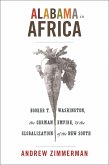In 1848, when slavery was abolished across greater France, the practice remained virtually intact in the French colony of Senegal on the west coast of Africa. Slavery would continue to be practiced in the colony and its expanding borderlands until at least 1905, when this study ends. This work takes a multi-faceted approach by examining three aspects of French imperial culture that mitigated slave freedom in Senegal: the views of race and slavery maintained by Senegal's influential métis (mixed-race) population; French ethnological assessments of the aptitude and capabilities of black West Africans; and related, a trend within French political culture to deny metropolitan rights to the non-white colonized-a phenomenon that intensified in far-flung French territories that were not completely under French control, and where few whites resided.
In complexifying post-colonial literature of West Africa, this study will be a useful resource to students and scholars of the history of slavery, colonial history, and West African studies.
Dieser Download kann aus rechtlichen Gründen nur mit Rechnungsadresse in A, B, BG, CY, CZ, D, DK, EW, E, FIN, F, GR, HR, H, IRL, I, LT, L, LR, M, NL, PL, P, R, S, SLO, SK ausgeliefert werden.









